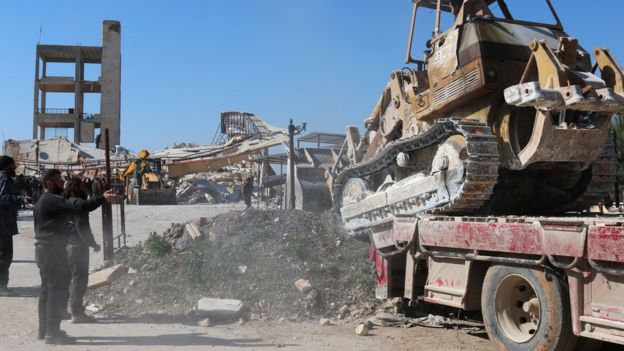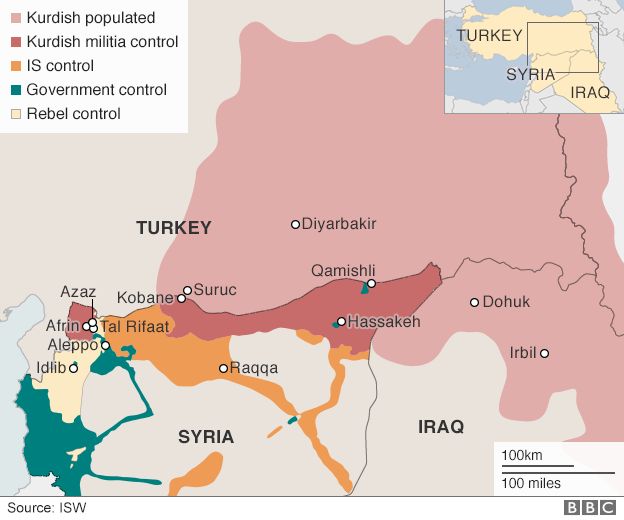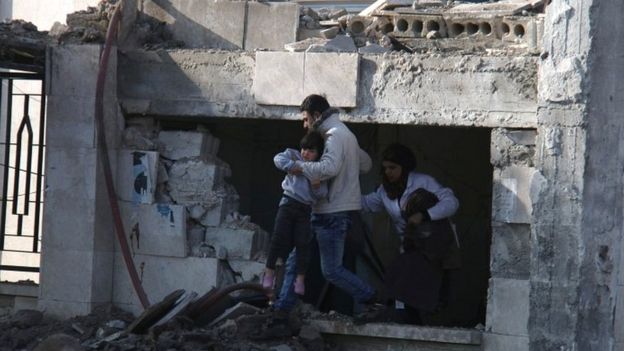- HOME»
- NEWS»
- WORLD NEWS»
- EUROPE»
- RUSSIA
America to investigate Russian meddling in EU
Exclusive: UK warns of "new Cold War" as Kremlin seeks to divide and rule in Europe

American intelligence agencies are to conduct a major investigation into how the Kremlin is infiltrating political parties in Europe, it can be revealed. Photo: Alamy

By Peter Foster, Europe Editor and Matthew Holehouse in Brussels
6:41PM GMT 16 Jan 2016
AMERICAN intelligence agencies are to conduct a major investigation into how the Kremlin is infiltrating political parties in Europe, it can be revealed.
James Clapper, the US Director of National Intelligence, has been instructed by the US Congress to conduct a major review into Russian clandestine funding of European parties over the last decade.
The review reflects mounting concerns in Washington over Moscow’s determination to exploit European disunity in order to undermine Nato, block US missile defence programmes and revoke the punitive economic sanctions regime imposed after the annexation of Crimea.
The US move came as senior British government officials told The Sunday Telegraph of growing fears that “a new cold war” was now unfolding in Europe, with Russian meddling taking on a breadth, range and depth far greater than previously thought.

“It really is a new Cold War out there,” the source said, “Right across the EU we are seeing alarming evidence of Russian efforts to unpick the fabric of European unity on a whole range of vital strategic issues.”
"It is a clever game. There are unwritten rules between nation states, and these rules are clearly being violated by the Russian side, but they know the West cannot ban them without harming their own values of freedom of expression."
Dr Igor Sutyagin, Royal United Services Institute (RUSI)
http://twitter.com/intent/tweet?tex...ampaign=buffer?WT.mc_id=tmgoff_pq_tw_20150423
http://www.facebook.com/sharer.php?...ampaign=buffer?WT.mc_id=tmgoff_pq_fb_20150423
A dossier of “Russian influence activity” seen by The Sunday Telegraph identified Russian influence operations running in France, the Netherlands, Hungary as well as Austria and the Czech Republic, which has been identified by Russian agents as an entry-point into the Schengen free movement zone.
The US intelligence review will examine whether Russian security services are funding parties and charities with the intent of “undermining political cohesion”, fostering agitation against the Nato missile defence programme and undermining attempts to find alternatives to Russian energy.
Officials declined to say which parties could come into the probe but it is thought likely to include far-right groups including Jobbik in Hungary, Golden Dawn in Greece, the Northern League in Italy and France’s Front National which received a 9m euro (£6.9m) loan from a Russian bank in 2014.
Other cases of possible Moscow-backed destabilisation being monitored by diplomats includes extensive links in Austria, including a visit by Austrian MPs to Crimea to endorse its annexation, as well as cases of Russian spies discovered using Austrian papers.
Russian influence has also been detected in a referendum in the Netherlands next April over whether to block the EU’s closer relations with Ukraine. Sources said arguments deployed in support of the referendum “closely resembled” known Russian propaganda.
Russian desire to influence politics in Britain is also in the ascendant, sources said, as the Kremlin eyes the forthcoming EU referendum and the election of Jeremy Corbyn as Labour leader as potential opportunities to weaken Europe.
Igor Sutyagin, the Russia specialist at the Royal United Services Institute (RUSI) said that Russia’s propaganda machine was currently “very active”, deploying what security experts call “hybrid warfare” that blends conventional military powerwith guerrilla tactics and cyber warfare.
“The Russian campaign exists in a grey area, operating covertly - and often legally - to avoid political blowback, but with the clear aim of weakening Western will to fight, maturing doubts over Nato, the EU, Trident and economic sanctions,” he said.
“It is a clever game. There are unwritten rules between nation states, and these rules are clearly being violated by the Russian side, but they know the West cannot ban them without harming their own values of freedom of expression.”
Analysts have noted how Russia Today, the Kremlin-controlled television channel which operates in Britain, gave extensive and very positive coverage of Mr Corbyn’s leadership campaign. It covered six of his public rallies and speeches, which it did not do for rival candidates.
In an unprecedented intervention in Britain’s domestic affairs, Alexander Yakovenko, the Russian ambassador to London, hailed Mr Corbyn’s election as a “radical breakthrough”.
He hailed the election as a “democratic mandate” for his platform of “opposition to military interventions of the West, support for the UK’s nuclear disarmament, conviction that NATO has outstayed its raison d'etre with the end of the Cold War, just to name a few”.

Andrew Foxall, director of the Russian centre at the Henry Jackson Society think-tank, said Russia had become "more audacious" in its approach as it attempts to fight off the Crimea sanctions.
"No-one is suggesting that Corbyn is on the payroll of the Kremlin at all - simply that his interests demonstrably overlap with what the Kremlin is saying. Russia has ramped up its influencing policy and is trying to achieve in six months or a year what it previously took a decade to achieve.
“Wherever the opportunity presents itself, Russia wants to undermine the West – to present the argument that the West is no better than they are. It wants to see an end of the European Union because it much prefers a policy of divide and rule."
Relations between London and Moscow have been in the diplomatic deep freeze for more than a decade, and are likely to chill a few more degrees this week with the publication of a public inquiry into murder of Alexander Litvinenko, a former Russian agent who claimed asylum in Britain.
The inquiry was charged with identifying who was responsible for the poisoning of Mr Litvinenko in London in 2006 using radioactive polonium-210, and is widely expected to point the finger at the Kremlin.
The UK has recently taken steps to combat Russian meddling. In August, the Russian embassy claimed that the Home Office had effectively forced out four of its diplomats by refusing to extend their visas.
Among them was Sergey Nalobin, a familiar face on the Westminster drinks circuit who was associated with the Conservative Friends of Russia, a pro-Russian group backed by several prominent MPs that dissolved in 2012 after questions emerged over its neutrality.
Mr Nalobin was previously stationed in Venezuela, and is now thought to be working at the Foreign Ministry in Moscow.
Russia also took an active interest in the Scottish referendum which threatened Britain’s Trident base at Faslane and which was given extensive coverage on Russia Today. Afterwards, Russia claimed the count was flawed and suggested the result was rigged.
Ukip has also faced scrutiny, given that Nigel Farage and other senior staff have praised Mr Putin and accused the EU of “provoking” Russia’s annexation of Ukraine. However, there is no evidence of any direct contacts between the party and Russian officials.

















